Hi, this is my monthly email of activities.
This month I dug in and worked on a number of projects in the studio at my residency at ZK/U in Berlin. I've had a really good month but also some personal challenges.
I started working with the Pollinator program of peer-coaching on our creative projects at the beginning of October, with others based in London, New York, Boston and Philippines. And I participated in the Creative Code Jam here in Berlin.
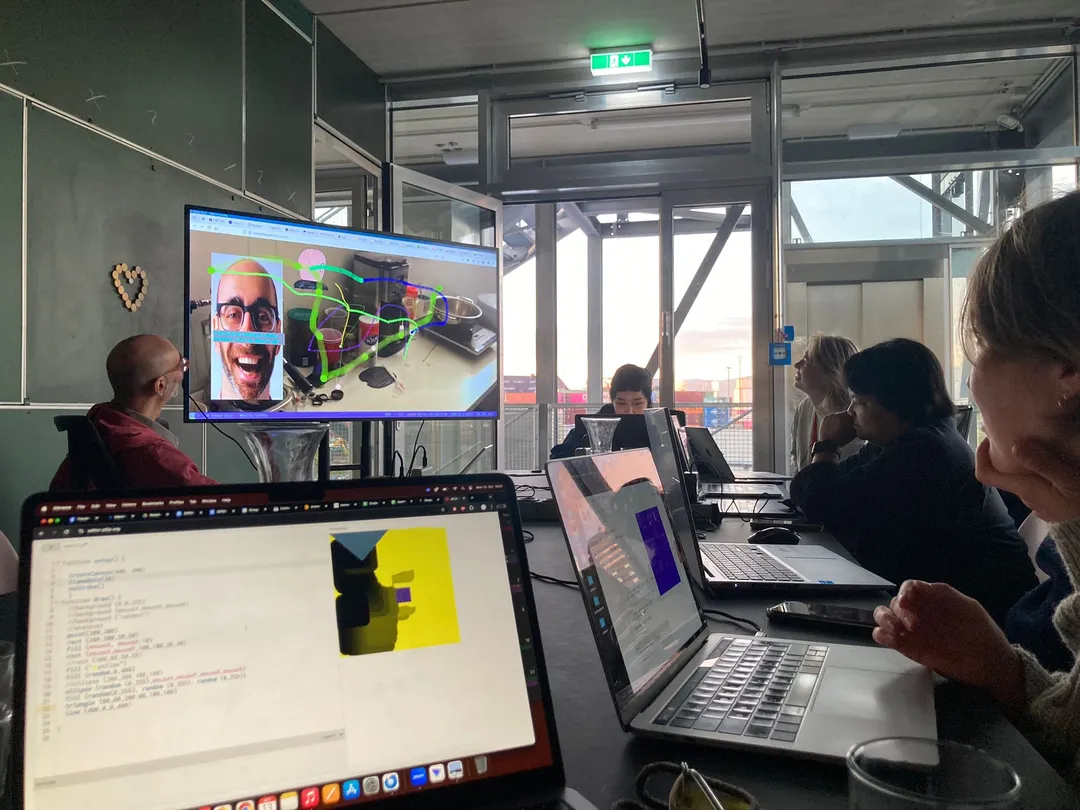
My introduction to making art with code workshop at Z/KU this month
I led a workshop and gave a talk at ZK/U this month. They both went well and I'm enjoying getting to know the other fellows here. Our open studios went well last month, where I presented new work, video and a music set.
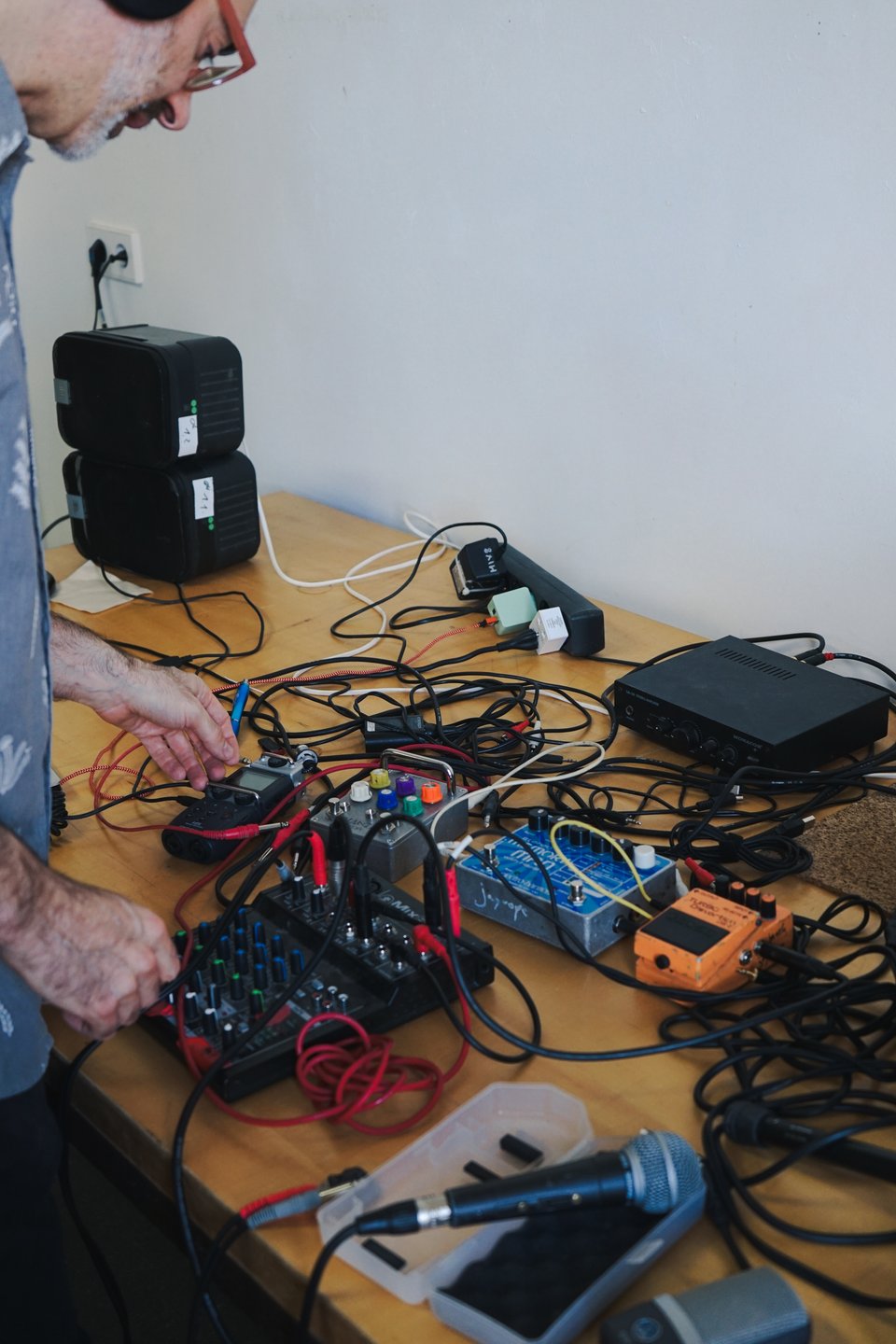
Music studio photo by Elisa Georgi
Music Collaborations at ZK/U
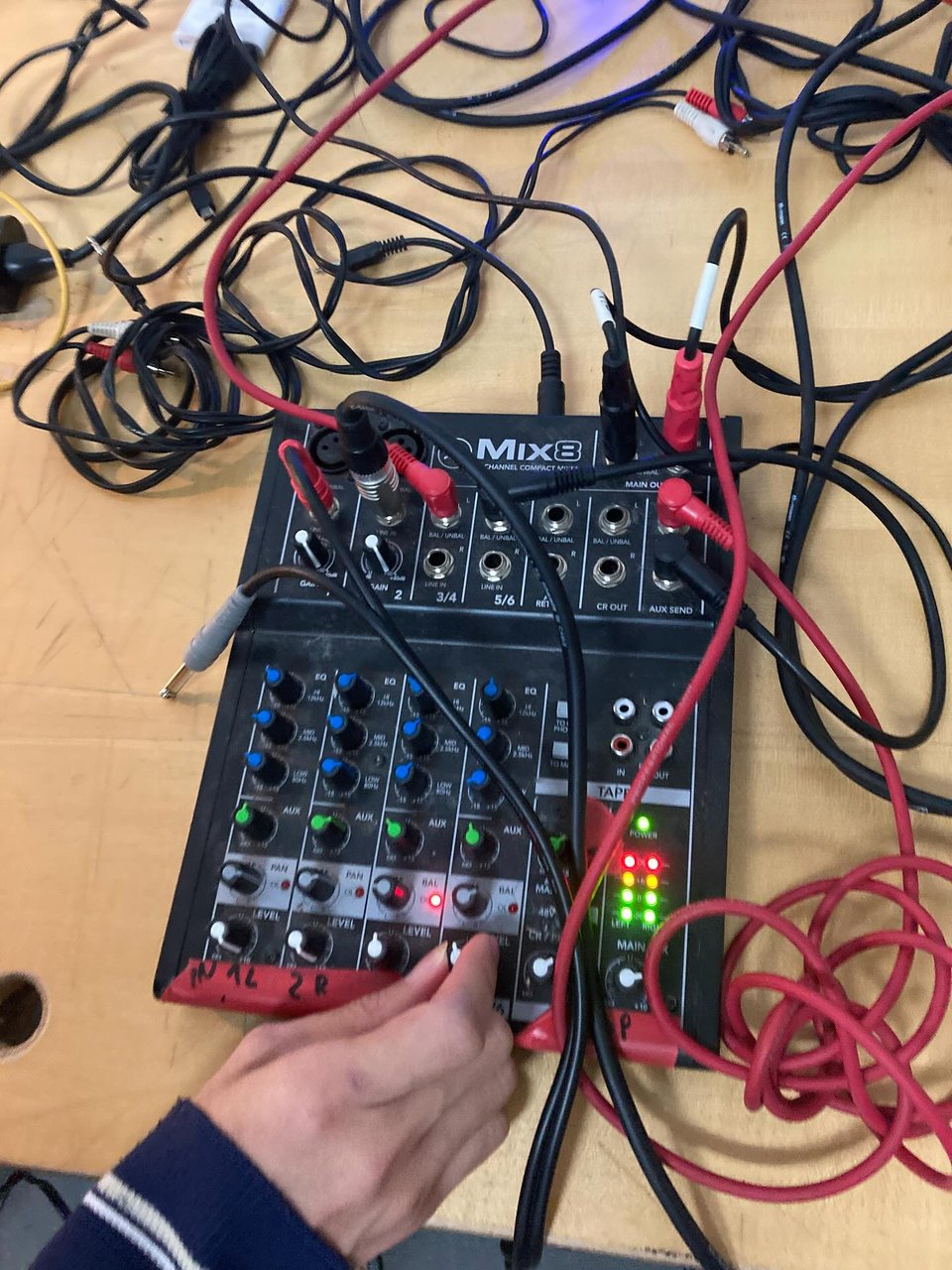
Most recently I’ve had the pleasure of collaborating with other artists at ZK/U. I set up a studio no-input mixing board system, which I’m loving as an alternative to the modular synth. Like the modular, it can often act in surprising ways, like a collaborator with a mind of its own that responds to or subverts my intentions. Unlike a modular it is economically accessible, and is a “hack” on its more typical use as a mixing device. It is also extremely hands-on and responsive in a way that the modular is not. It feels more akin to working with hands-on instruments like a Theremin. As a feedback-based system, it can sound quite harsh, and taming it and turning it into musical language is part of the fun and exploration.
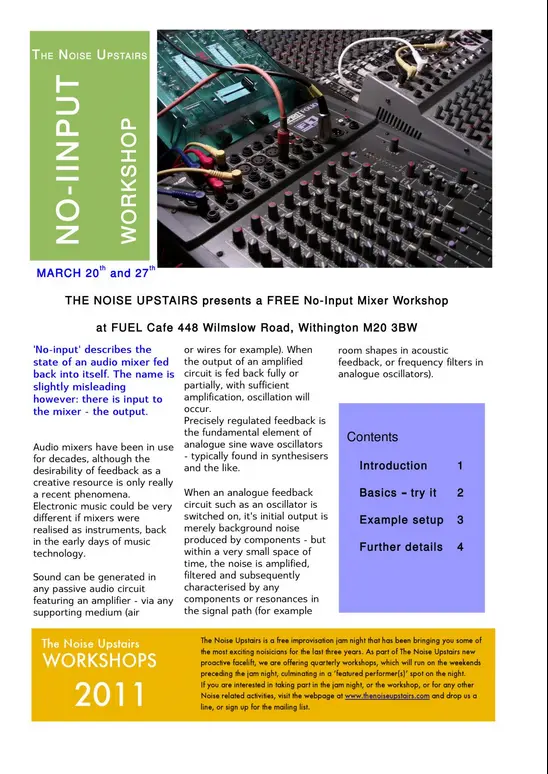
This no-input workshop manual I placed in the Dig Archive
Zelin Seah is a visiting artist-in-resident from Malaysia creating installations and workshops. We’ve been making sound pieces using the no-input mixing board with field recordings and processed vocals.
siiri hänninen and Ella Prokkola are fellows at ZK/U from Finland. They are working on the Soiva Metsä festival and River Assemblies. We’re jamming with the no-input mixing board with clarinet and voice.
I hope to get these online as mixes or albums in the next month, and to play more shows! We will be presenting some of these collaborations live at ZK/U on November 20 at our Openhaus.
Work proceeds on L5, a Processing-like language for Lua
I started building L5, a Lua-based language for making art with code about 3 months ago. L5 is a fun, fast, cross-platform, and lightweight implementation of the Processing concepts in Lua. It is a free and open source coding library to make interactive artwork on the computer, aimed at artists, students, and anyone that wants a flexible way to prototype art, games, toys, and other software experiments in code. It is fast. It works on ancient (and new) computers, phones, tablets cross-platform. It is a consistent and simple language. And it works in constrained environments, perfect for art installations for example, or where you need lots of media.
I have been building a number of works in the language as a way to try it out, debug, and add missing functionality. I am currently trying to finish up a documentation site (no content live there yet, but soon!) and would like to announce an alpha version for testing ideally next month. Get in touch if you want to be among the first to be notified when it's ready for testing. I exhibited a piece created in L5 last month at the Openhaus, and I also worked on L5 during the Creative Code Jam at MotionLab.Berlin this month.
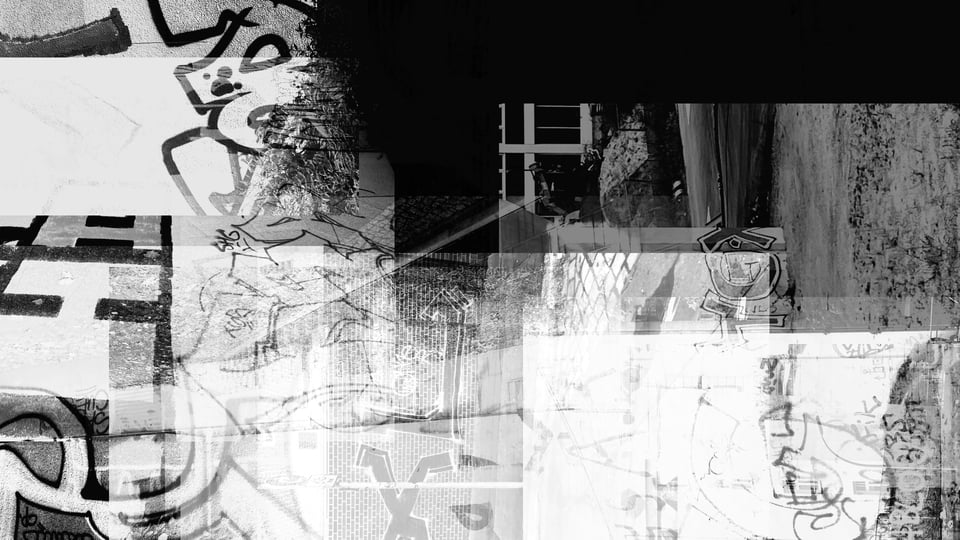
A screenshot from a generative work using wall textures/graffiti shot in Berlin
In addition to building the language I'm working collaboratively on a conference paper on the Processing family of languages. More info on that in the future.
Algorithmic Pattern Salon talk now online
Last month I traveled to the UK to speak at the Algorithmic Pattern Salon. My talk Encoding and Experimenting with Vernacular Quilt Patterns is online.
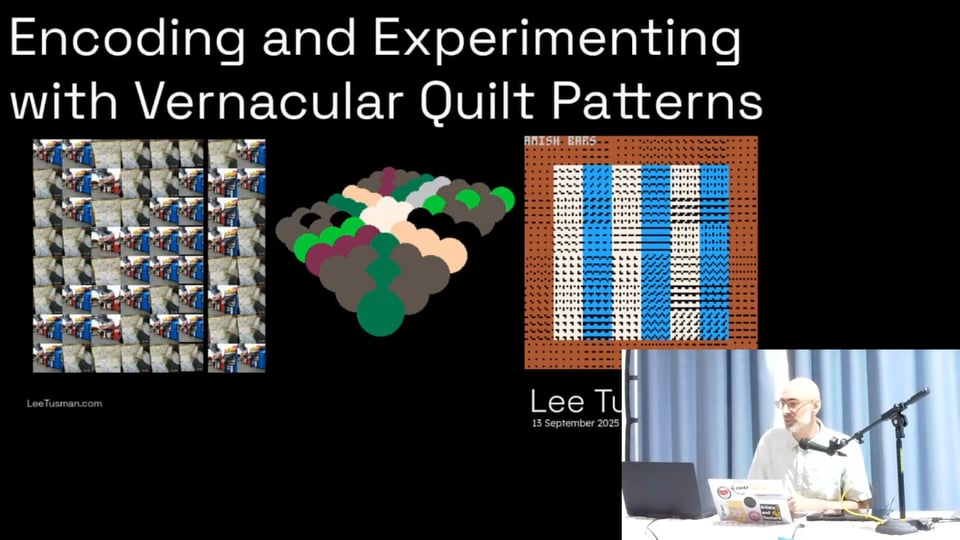
Dig Archive in the wild
Thanks to everyone for their feedback on the ➘Dig Archive. A few folks let me know they are using its resources in their classes. Excellent.
➘Dig Archive is an archived collection of digitized media art, text, zines, videos, and other saved works from around the net, and beyond.
I added a RSS Feed for new items added to the site. For example, newly added is this article on Practical Retrofitting for Obsolete Devices.
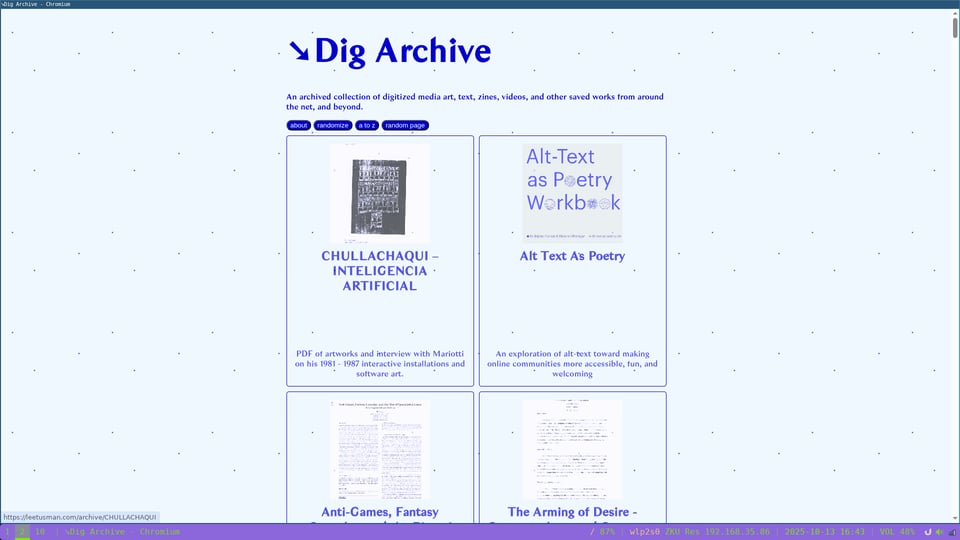
I'm open to any feedback on the site.
Thanks
That's it for now. Behind the scenes work continues on Artists and Hackers, which I've been working on during my Pollinator time. My daily work log is online on my website, and I post irregularly to my artist instagram and musician instagram.
XO, Lee
You just read issue #19 of Lee Tusman newsletter. You can also browse the full archives of this newsletter.